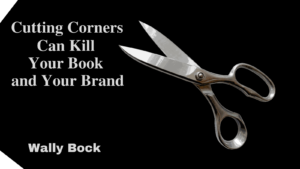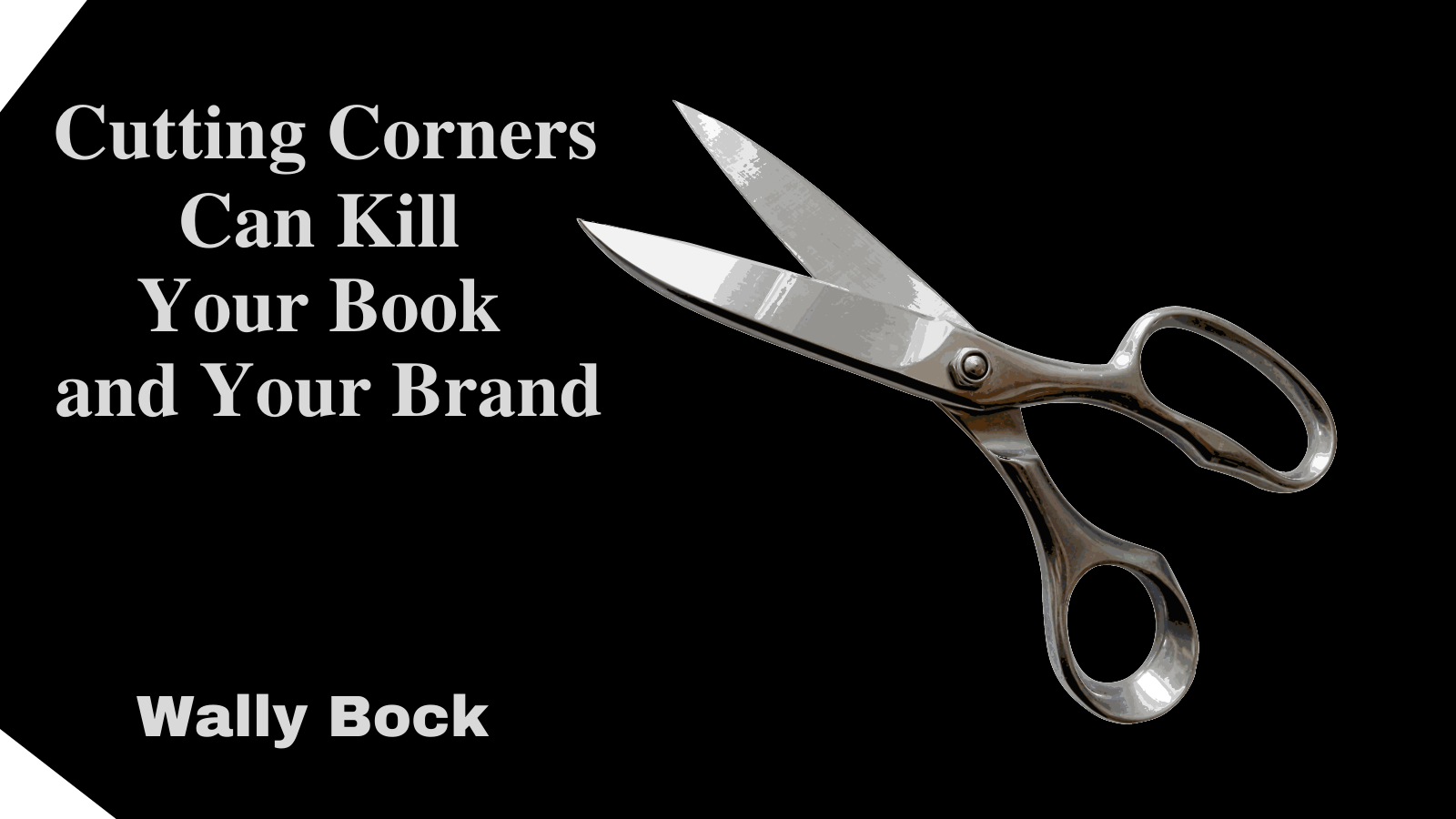 A couple of weeks ago, I had a Zoom chat with a woman who wanted to write a book to help her business. Before we chatted, I checked out her website and her LinkedIn page. She seemed successful, mid-career, and ready to boost her brand with a book.
A couple of weeks ago, I had a Zoom chat with a woman who wanted to write a book to help her business. Before we chatted, I checked out her website and her LinkedIn page. She seemed successful, mid-career, and ready to boost her brand with a book.
She surprised me when one of her first questions was “How can I cut corners on my book?” Of course, you can cut corners on your book. But everything you cut is a risk. There’s a reason why legacy publishers do things in a certain way.
People Will Draw Conclusions About You Based on Your Book
People who never met you get a sense of you when they hold your book in their hands. That can be a good thing or a bad thing. When your book is high-quality, it can shift you right to the top of mind for prospective clients.
The reverse can happen, too. People can look at your book or read it and decide that you’re not a person they want to deal with. That may not be fair, but that’s the way it is. Not only that, once your book is out in the world it’s that bell you can’t unring.
When people read your book, they compare it with professionally produced books. Your challenge is to live up to the standard that legacy publishers have set.
Covers Are Your Book’s First Impression
“You never get a second chance to make a first impression.” That’s true for you and the book that represents you.
Don’t believe the saying, “You can’t judge a book by its cover.” In fact, people do that all the time. If your book cover doesn’t look professional-grade, potential clients may not even bother to look inside.
Great Writing Is Rewriting
Now that’s an old saying you should pay attention to. Nobody writes a professional-quality book in one go. Great writing is an iterative process. You think it through. Then you write a draft. Then you review the draft and write another one. Most of the business books I work on go through three or four revisions before they go on to a professional editor.
Professional Editing Is Not Optional
Over the years, I’ve had several clients who thought they could edit their own work and save the cost of a professional editor. Others have a spouse or other relative who “was an English major.” They think that person can do a good editing job.
Forget it. A professional editor gives you a second, dispassionate, set of eyes. Those eyes are connected to a brain that knows what good writing looks like and what normal publishing conventions are. A good professional editor knows a lot and can save you from yourself.
Interior Design Is A Hygiene Factor
Your book cover isn’t the only thing that needs to be designed. The interior of the book, including the typefaces, space between lines, and everything else that appears on the pages, must be designed, too. Interior design is a hygiene factor.
Hygiene factors are things that you don’t notice when they’re right, but they make a big impact when they’re wrong. In fact, if someone says to you “Wow, what an interesting design for a book,” it’s probably not a good thing.
Takeaways
People will compare your book to professionally produced books.
People draw conclusions about you and your brand based on your book.
Covers are your book’s first impression.
Great writing is rewriting.
Professional editing is not optional.
People notice bad interior design but not good.
